Customs inspectors find invasive giant snails in suitcase at JFK Airport
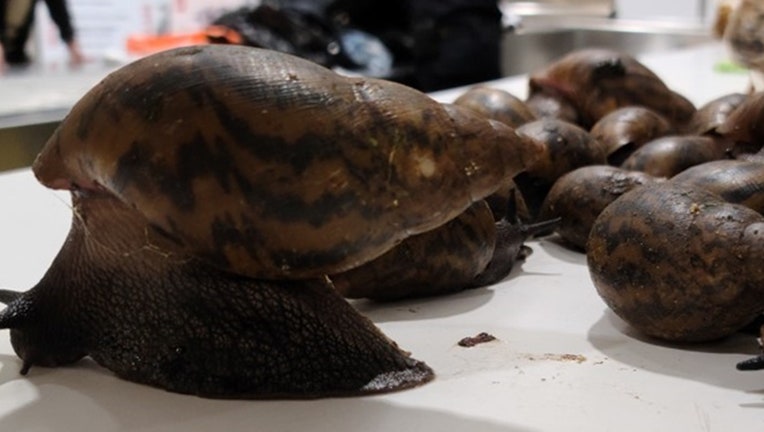
(U.S. Customs and Border Protection)
NEW YORK - Customs authorities examining luggage at John F. Kennedy Airport in New York on Sunday intercepted nearly two dozen invasive and potentially dangerous snails in a traveler's bag, officials said.
Agriculture specialists with U.S. Customs and Border Protection found 22 giant African snails and about 24 pounds of prohibited oxtail, dried beef, turkey berry, carrot, medicinal leaves, and a spice called prekese in a man's luggage, federal officials said. The traveler, an American, had flown in from Ghana.
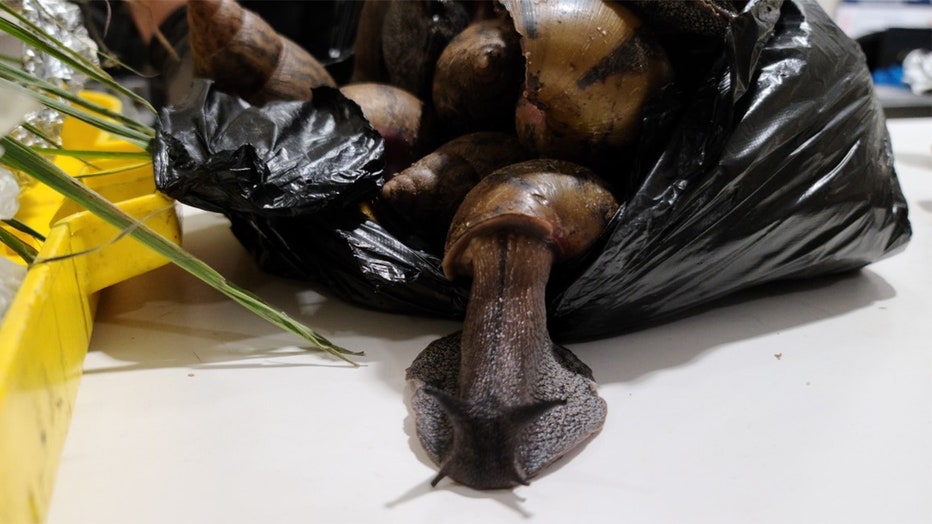
(U.S. Customs and Border Protection)
"They may be slow, but the highly invasive, slimy critters that agriculture specialists caught at on Sunday can quickly damage vital crops and structures," CBP said in a news release.
The giant African snail is one of the most damaging snails in the world because it consumes at least 500 types of plants, according to the U.S. Department of Agriculture. The snails can also cause structural damage to plaster and stucco buildings.
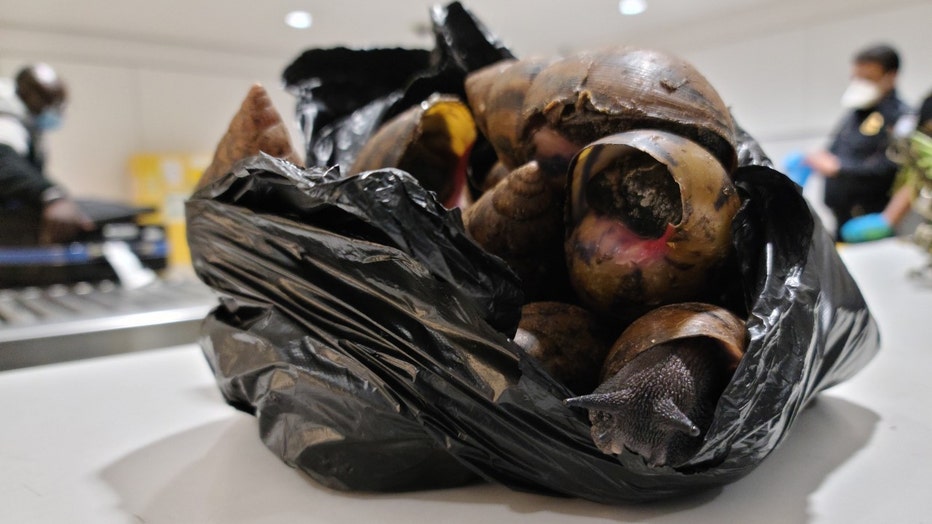
(U.S. Customs and Border Protection)
The invasive species can also pose a serious health risk to people because it carries a parasite that can cause meningitis, officials said.
"Customs and Border Protection agriculture specialists are our nation's frontline defenders against invasive plant and animal pests that threaten our agricultural resources," CBP's Marty Raybon said in a statement, "and they face this complex and challenging mission with extraordinary commitment and vigilance."
Get breaking news alerts in the FOX 5 NY News app. Download for FREE!
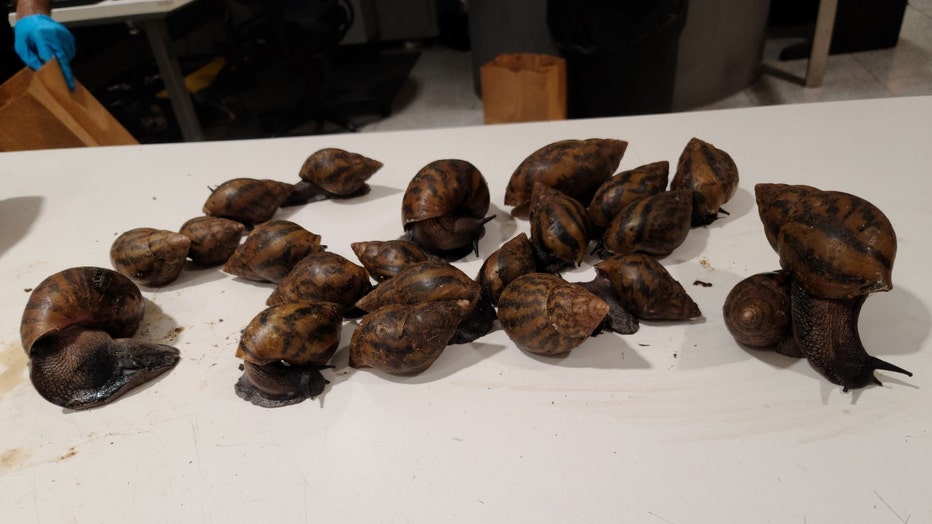
(U.S. Customs and Border Protection)
CBP agriculture specialists are specially trained in biological sciences and agricultural inspection. They examine international cargo shipments and baggage belonging to commercial travelers looking for "invasive insects, federal noxious weeds, and plant and animal diseases that could have a serious impact on our national agricultural resources," the agency said.
On a typical day in 2020, CBP agriculture specialists at ports of entry around the country seized thousands of banned plants, meats, animal byproducts, and containers of soil, as well as hundreds of insects.
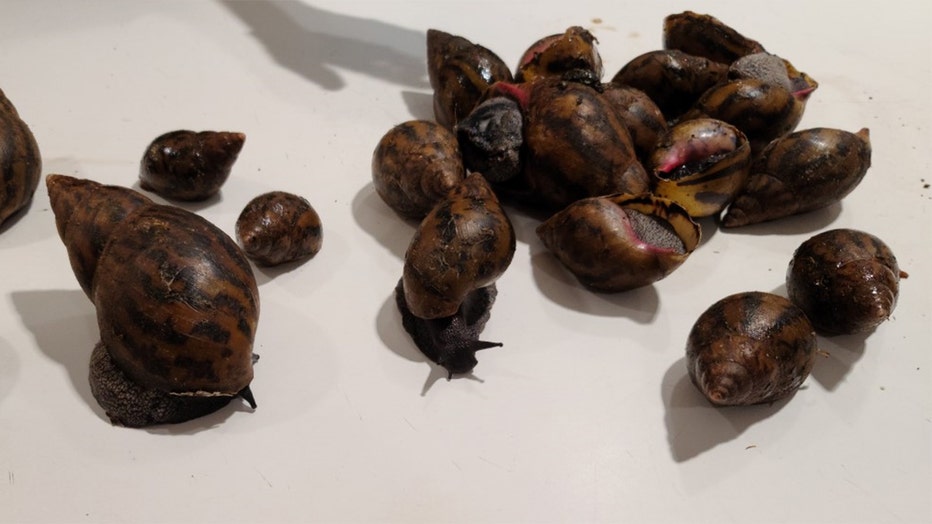
(U.S. Customs and Border Protection)

